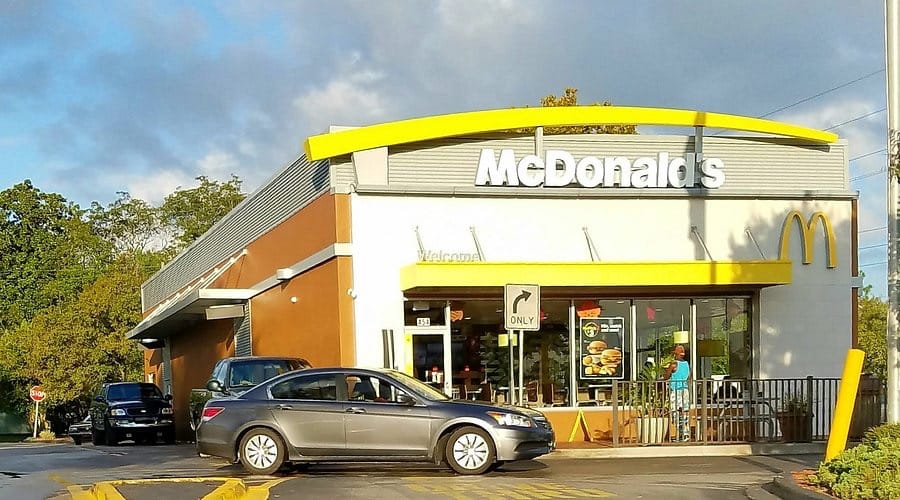May 2 2025
Shopper pullback hurts retailers; Waltz out as NSA, Rubio interim; Trump ends tariff loophole; Trump proposes budget cuts; China open to trade talks

Middle, Lower-Income Shoppers Pull Back, Rattling Retailers
Waltz Ousted as NSA, Rubio Tapped for Interim Role
Trump Closes China Tariff Loophole; Higher Prices Expected for Online Shoppers
White House Unveils Budget Wish List: Deep Cuts Proposed Ahead of Capitol Hill Battle
Beijing Signals Openness to Trade Talks
GET THE CITIZEN JOURNAL APP - FREE!
FLASH…TODAYS JOBS REPORT TO BE CLOSELY WATCHED…RELEASED AT 930A CST…
Today’s nonfarm payrolls report is the first to cover a period since President Trump’s April 2 tariff announcements. Economists expect the economy added 133,000 jobs, down from 228,000 in March, while the unemployment rate is seen holding steady at 4.2%.
1. Middle, Lower-Income Shoppers Pull Back, Rattling Retailers
Middle-class and lower-income Americans are in belt-tightening mode. Plunging consumer confidence is pummeling the financial results of companies that cater to middle-income households, from McDonald’s to General Motors. McDonald’s reported its worst sales since the pandemic for established U.S. restaurants, after anxious middle- and low-income diners cut their spending. Sales of Harley-Davidson motorcycles dropped by 24% from a year earlier. And Hershey said it expects a 30% drop in profits if tariffs stay as they are. “People are just being more judicious,” McDonald’s Chief Executive Chris Kempczinski told investors Thursday. Some companies, especially in technology, reported strong results or upbeat outlooks despite global economic uncertainty.
WSJ
2. Waltz Ousted as NSA, Rubio Tapped for Interim Role
President Donald Trump ordered the biggest personnel shake-up of his new administration on Thursday, replacing his national security adviser, Michael Waltz, with Secretary of State Marco Rubio, who will carry out the job on an interim basis while also serving as the nation’s top diplomat. Trump said he is nominating Waltz as U.N. ambassador. The decision reflects Trump’s disappointment with Waltz over his inadvertent inclusion of a journalist on a group chat about military operations in Yemen, and broader frustration over Waltz’s appointment of staffers viewed as disloyal to the president. But in choosing to nominate him as U.N. ambassador, a job that requires Senate approval, Trump has set the stage for a contentious confirmation process that will allow Democrats to grill Waltz over the opening months of Trump presidency’s and compel sworn testimony on sensitive matters including immigration, tariff policy, military operations and diplomacy.
WaPo
Editors note: the last person to simultaneously be Secretary Of State and National Security Advisor was Henry Kissinger
3. Trump Closes China Tariff Loophole; Higher Prices Expected for Online Shoppers
The Trump administration on Friday officially eliminated a loophole that had allowed American shoppers to buy cheap goods from China without paying tariffs. The move will help U.S. manufacturers that have struggled to compete with a wave of low-cost Chinese products, but it has already resulted in higher prices for Americans who shop online. The loophole, called the de minimis rule, allowed products up to $800 to avoid tariffs and other red tape as long as they were shipped directly to U.S. consumers or small businesses. It resulted in a surge of individually addressed packages to the United States, many shipped by air and ordered from rapidly growing e-commerce platforms like Shein and Temu. A growing number of companies used the loophole in recent years to get their products into the United States without facing tariffs. After President Trump imposed duties on Chinese goods during his first term, companies started using the exemption to bypass those tariffs and continue to sell their products more cheaply to the United States. Use of the loophole ramped up in Mr. Trump’s second term as he hit Chinese goods with a minimum 145 percent tariff. U.S. Customs and Border Protection processed a billion such packages in 2023, the average value of which was $54.
NYT
4. White House Unveils Budget Wish List: Deep Cuts Proposed Ahead of Capitol Hill Battle
WASHINGTON—President Trump is expected to propose far-reaching cuts to federal environmental, renewable energy, education and foreign-aid programs in a budget blueprint that slashes nondefense discretionary spending by more than $160 billion, according to administration officials. The fiscal 2026 budget proposal, which the White House is planning to release on Friday, is a largely symbolic wish list that lays out the president’s spending and political priorities. Congress, which Republicans control by narrow majorities in both chambers, will spend months debating which elements of the proposed plan should be turned into law. The budget plan will propose $557 billion in nondefense discretionary spending, officials said. It would reduce nondefense discretionary spending by $163 billion, the officials said. The administration said that represents a 22.6% cut from projected spending in fiscal 2025, which ends Sept. 30. Nondefense discretionary spending represents the portion of federal money that must be reauthorized each year and includes funding for areas such as education, transportation and public health. It doesn’t include Medicare, Medicaid and Social Security, or spending on defense.
WSJ
5. Beijing Signals Openness to Trade Talks
Chinese state media has said there would be “no harm” in holding trade talks with the Trump administration, indicating a softening of Beijing’s position as both sides look for a way out of their crushing tariff war. The gesture comes as Trump has indicated he hopes to negotiate over trade and as the fallout has begun to show in China’s economic data, with factory activity in April dropping the most since 2023 as export orders dried up. Yuyuan Tantian, an account affiliated with state broadcaster CCTV, said in a social media post on China’s Weibo platform on Thursday that Beijing did not need to talk to the US before Washington took substantive action. “But if the US wishes to engage with China, there’s no harm in it for China at this stage,” it said.
FT
May 2, 1933: Loch Ness “Monster” sighted for the first time, igniting the modern legend
SUBSCRIBE ONLINE TO GET THE US CITIZEN JOURNAL IN YOUR INBOX - FREE!
App update: subscribe to notifications
Eliminate unwanted notifications

See the Ad Astra Podcast! Released on Apple and Spotify around 10a CST.
Sponsors (click me!)





Sources
- https://www.wsj.com/business/earnings/company-earnings-trump-tariffs-economy-f734b477?mod=hp_lead_pos11
- https://www.washingtonpost.com/national-security/2025/05/01/mike-waltz-trump-national-security-adviser/
- https://www.nytimes.com/2025/05/02/business/economy/trump-china-tariffs-de-minimis.html
- https://www.wsj.com/politics/policy/trump-to-propose-slashing-163-billion-in-government-programs-in-budget-blueprint-86309f80?mod=hp_lead_pos2
- https://www.ft.com/content/e6e66a65-7a9e-4aa5-85a2-e223ca487398

